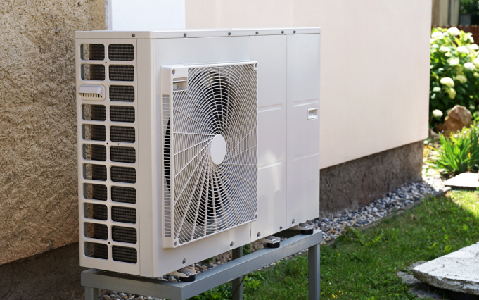
Delaware and Maryland are among 25 states vowing to quadruple the number of heat pumps currently installed by 2030. For both economic and environmental reasons, the transition to heat pumps is extremely important for the future of HVAC.
On September 21st, 2023, a bipartisan coalition of 25 governors announced a commitment to collectively reach 20 million residential electric heat pumps by 2030. Many major manufacturers of heat pumps, including Johnson Controls, Siemens, Carrier and Trane Technologies released a letter of support following the announcement. The 25 states make up 55% of the US population and 60% of the US economy. Two of the governors signing on to this commitment include both Delaware’s John Carney and Maryland’s Wes Moore. Currently the number of heat pumps installed amount to roughly 5 million between these 25 states. Meeting these goals in a mere seven years would quadruple the current number of heat pumps.
Heat pumps are a more energy efficient version of furnaces and air conditioners. They use electricity as a means to transfer air, allowing for these systems to both heat and cool. The reason heat pumps run on less electricity than other types of HVAC systems is that they extract ambient air from the outdoors or underground and transfer it inside, instead of burning fossil fuels, for instance. Heat pumps are just as efficient at cooling, pulling heat from indoors and dumping it outside or underground. Compared to a gas boiler, heat pumps reduce greenhouse gas emissions by 20% when operating on emissions-intensive electricity and as much as 80% compared when operating on cleaner electricity, according to the International Energy Agency. Making this switch can reduce home heating emissions in every US state by 35–93 percent while even saving lives through improved air quality and protecting residents from volatile gas commodity prices.
We understand that the transition to heat pumps can be initially expensive. However, heat pumps are not only more energy efficient, but can significantly reduce your home energy bill. Within this commitment by the 25 states, financial incentives are being offered and this does include lower income households. Currently, the IRA (Inflation Reduction Act) is directing money towards rebates with up to $8,000 for a heat pump and $6,500 for a panel upgrade.
Heat pumps offer an array of benefits for an owner of a home or business. They can reduce electric bills due to the efficient process in which they extract and use air to condition spaces. This is a contrast to oil and gas furnaces, which tend to require more service and fossil fuels to produce heat. When considering the potential savings that heat pumps can offer, the less intensive maintenance required as well as the decreased environmental impact, a heat pump system is a logical heating and cooling system to use.
Looking to install a heat pump? Contact Us Today!
Published: October 18, 2023

Need fast and reliable HVAC service?
OR CALL 410-860-1277 / 302-313-4618
MD 18106, MD 886, DE HM-0000736, DE PL-0002392, NC 20239, VA 2710032467